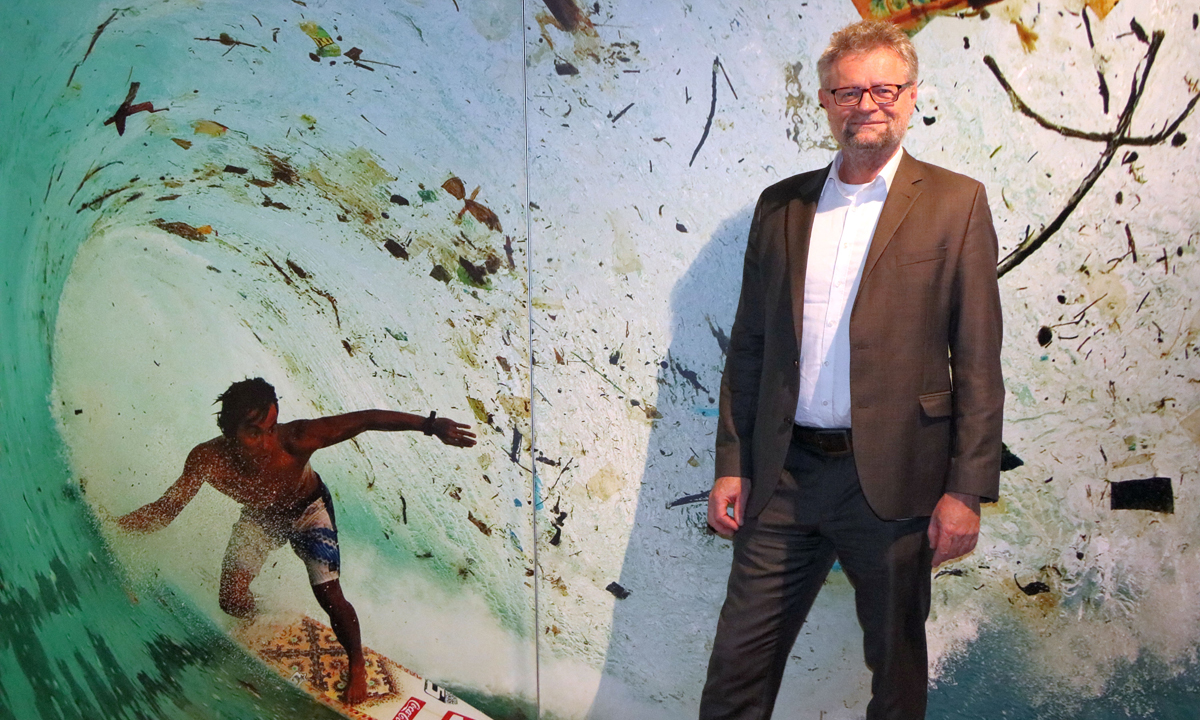“Planet or Plastic?”: National Geographic photo exhibition in Bonn
Bernhard Misof, General Director of the LIb, at the opening of the exhibition. © LIB, Heine
Dependence on plastic has become a worldwide problem. The National Geographic exhibition “Planet or Plastic?” aims to draw attention to the global plastic waste crisis and highlight solutions. In cooperation with Expona, Museum Koenig Bonn will present the special exhibition from September 29, 2022 to April 16, 2023.
193 countries agreed at the UN Environment Assembly in Nairobi in March 2022 to initiate an agreement against plastic pollution of the environment. The National Geographic exhibition “Planet or Plastic?” shows that it is high time for this.
“Plastic pollution is one of the most important global environmental challenges of our generation,” says Kathryn Keane, vice president of public programming at the National Geographic Society. “But it’s an issue we can all do something about. This exhibition informs us about how we got to this point, shows the scope of the problem and how everyone can be a part of the solution. National Geographic has committed to reducing our reliance on single-use plastics. We hope that after visiting the exhibition, visitors around the world will join us in this commitment.”
“With the National Geopgraphic exhibition “Planet or Plastic” we can make the serious consequences of the use of plastic clear to a broad public and hope to move many people to take action to reduce the amount of plastic waste”, explains Prof. Bernhard Misof Director General of the LIB.
“Planet or Plastic?” builds on National Geographic’s multi-year global initiative to reduce the amount of single-use plastic entering the oceans. The exhibit tells the story of plastic from its invention just over a century ago to its mass consumption today. In many areas of life, we can no longer cope without plastics. They have revolutionized medicine and made space travel easier – but they also extend the shelf life of fresh food, make it possible to supply clean drinking water to those who don’t have it, and save lives in airbags or helmets. Yet despite its usefulness and convenience, an exorbitant amount of plastic products is improperly disposed of, with approximately 6.3 billion tons of plastic waste not being recycled. The waste has been found in oceans from the Arctic to Antarctica and from the surface to the ocean floor. Marine animals have ingested it or become trapped in it.
So what is it all about? Clearly, it’s about the right, conscious use of plastic. About solutions and answers to a number of urgent questions. The exhibition “Planet or Plastic?” polarizes. And that’s a good thing. With 70 powerful images by renowned photographers from around the world, as well as infographics and videos, it shows the need for a balance between the use of this material and the protection of our environment. In addition, the exhibition presents steps visitors can take in their lives to responsibly reduce, reuse, recycle and dispose of products containing single-use plastics.
“PLANET OR PLASTIC?” is a traveling exhibition of the National Geographic Society and is presented in collaboration with Museum Koenig Bonn and Expona.






